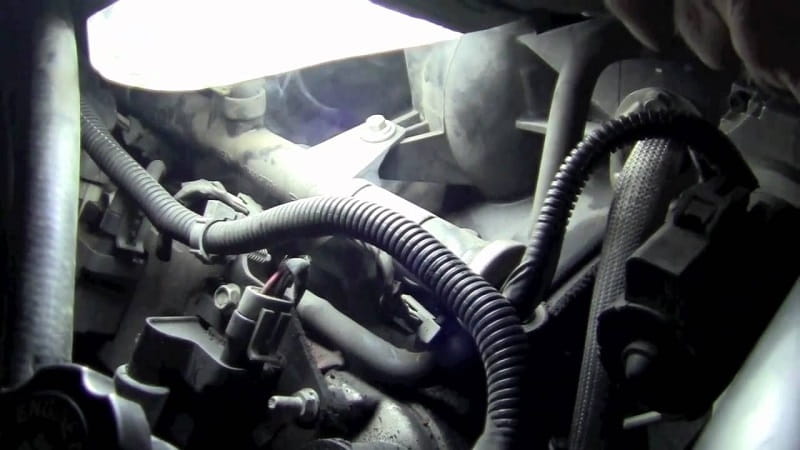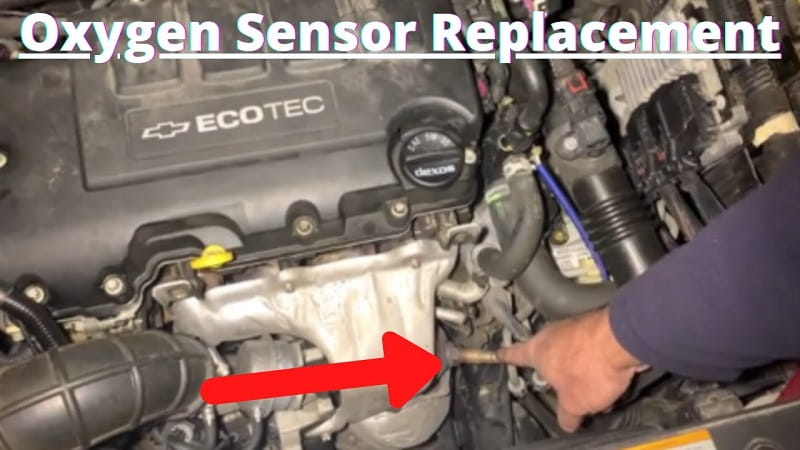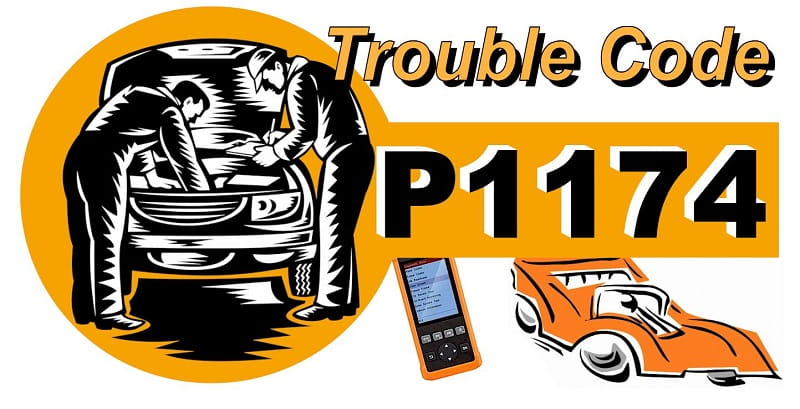Engine Power Reduced in a Chevy Cruze, catdumptruck.com | When your Chevy Cruze experiences an Engine Power Reduced (EPR) code, you’ve probably already noticed some problems.
This code indicates that your car’s vital systems may not be functioning properly. It is very challenging to fix, so it is very important to check codes and TSBs to determine if you have an issue. Listed below are the causes, symptoms, and repairs that may be required.
Engine Power Reduced Chevy Cruze
Causes
Several possible causes of reduced engine power in a Chevrolet Cruze should be investigated and repaired as soon as possible. This issue can result in the transmission operating differently, unstable acceleration, and horrible gas mileage. A good repair manual will give you step-by-step instructions on how to identify the problem and resolve it. In some cases, additional diagnostic steps will be required to repair the problem. Having accurate repair information is vital to a trouble-free repair process.
Besides the clutch, a low transmission oil level, and a slipping clutch are also possible reasons for engine power reduction. Some other possible causes of reduced engine power in a Cruze include a failing ECU or oxygen sensor, malfunctioning fuel pump, or dirty MAF sensor. Regardless of the cause, taking your car to the mechanic immediately is advisable. You’ll be surprised at how much your vehicle can reduce its performance without any noticeable consequences.
Most cases of reduced engine power occur when an electronic throttle control system malfunctions. While the cause of the problem may not be completely obvious, the repair can be relatively inexpensive. The replacement of a throttle body, throttle position sensor, and cylinder head may be the most cost-effective solution. If these fail, your next step is to replace the entire throttle body. While replacing individual parts may be complicated, replacing the throttle body can save you time, money, and headaches.
Symptoms
When you notice that the engine power in your Chevy Cruze is reduced, there are several potential causes that you should look into. First, a faulty TAC system (Thermal Auto-Climate Control) may be the problem. Another possible cause is a faulty fuel system. A faulty clutch can also reduce the engine power, and this can cause a series of noises, squeaks, or pulsation when the car is in motion. The clutch may be failing or a faulty cable should be replaced if necessary. A faulty oxygen sensor can also be the culprit.
In order to fix the problem, you must know the cause of the reduced engine power warning light. The symptoms of this issue can vary and the solution for them can vary. If you have any doubts, seek the help of a mechanic and check all of the systems on your vehicle. It is best to get your vehicle checked as soon as possible. You might be able to solve the problem yourself, or you might need to take your vehicle to a mechanic for a check-up.
Another cause of engine power reduction in the Chevy Cruze is the ECU. While the ECU is an extremely important component, it can also go bad. It is responsible for combining the data collected from several sensors to regulate the engine’s performance. Symptoms of engine power reduced chevy cruze.
Engine Power Reduced Chevy Cruze
Repairs
If you see the “Engine Power Reduced” message on your dashboard, you’re likely experiencing one of several problems. This problem is caused when certain vital systems can’t perform properly, resulting in lower fuel efficiency and reduced engine power.
A faulty spark plug can lead to increased emissions, resulting in reduced engine power and fuel efficiency. Faulty spark plugs can also cause raw gasoline to be discharged into the exhaust system, which can damage the catalytic converter and cause overheating. To fix this problem, you’ll need to consult your trusted mobile mechanic and follow his or her repair instructions.
For the most accurate diagnosis of your vehicle’s problems, you’ll need a reliable repair manual. A good repair manual will cover all aspects of a car’s problems, from basic maintenance to detailed diagnostic instructions.
In many cases, the repair for engine power reduction involves replacing a throttle body, a position sensor, or both. Replacing the entire component can save you time and money, since it’s more convenient than fixing individual parts.
Another problem with your car’s acceleration is a faulty throttle body sensor. A malfunctioned throttle body sensor will cause the car to go into “limp home” mode, which is where the power is severely reduced no matter how hard you push the accelerator pedal.
When you see the “engine power reduced” message on your dashboard, you’ll likely experience this problem in your vehicle. This is also known as “limp mode,” and it basically means that your engine is running on performance limited mode, which should be sufficient to nudge you home.
OBD-II codes
If you have noticed the engine power reduced warning light on your Chevy Cruze, you should contact your car’s manufacturer for assistance. The problem likely lies in your car’s ECU or engine management sensors.
Without enough data to operate, the engine will not produce sufficient power to move. This code can be troublesome, but luckily it’s not the most expensive issue. In order to diagnose and repair the problem, you need an OBD-II scanner.
Your vehicle can display the Reduced Engine Power warning light for a variety of reasons. These include bad oxygen sensors, a clogged catalytic converter, or a loose connection. You can also find a variety of other problems that cause the engine power reduced warning light.
Once you’ve scanned the vehicle with an OBD-II scan tool, you can use this information to determine which parts are at fault. The cause of the reduced engine power warning can vary depending on your vehicle model and year.
The P1101 Chevrolet Cruze OBD-II code indicates that your vehicle’s Intake Air Flow System isn’t performing at its maximum capacity. This is a common problem with many Chevrolet vehicles, including the Cruze. This problem can result in reduced engine power and fuel economy. The problem will most likely be resolved by replacing the air filter element. Ultimately, you should consult your car manufacturer to determine the problem with your Chevy.
Exhaust leaks
A ‘Reduced Engine Power’ message is a sign that your Chevrolet Cruze has a faulty ECU or engine management system. This device controls the engine and uses information from several sensors to adjust the vehicle’s power output.
Typically, the message will appear when the Cruze can’t go more than 40 MPH. However, if it’s unable to go at that speed, it can be a safety risk.
The vacuum system in a Chevy Cruze helps to reduce adverse emissions by routeing fumes as gasoline evaporates. When you notice high idle RPM, you may have a vacuum leak. Additionally, the hoses connecting the vacuum system to the engine can dry out and crack after a long period of exposure to heat or cold.
Fortunately, there are ways to check the condition of your vacuum system before the problem becomes worse.
If you notice that your engine power is reduced, the first place to look is your catalytic converter. An OBD monitor will automatically reduce engine power when it detects an issue with your catalytic converter.
Replacing the converter may seem expensive, but it will rule out other possible problems that might have caused your reduced engine power. Ultimately, the reduced engine power warning will go away after you fix the underlying problem.
Engine Power Reduced Chevy Cruze
Mass airflow sensor
If you’ve noticed that your Chevy Cruze has been suffering from erratical engine speeds, you may need to replace the mass air flow sensor (MAS) and the air filter.
Even though you replaced both, your car still has trouble starting, staggers and runs poorly. If you’re experiencing these problems, you should contact a reputable mechanic right away. A faulty MAF sensor can also result in an incorrect air/fuel mixture and reduced engine power.
A faulty mass airflow sensor is the culprit behind your Chevy Cruze’s engine problems. This sensor is located near the air box and measures the density of air entering the engine.
When it fails to perform properly, it signals the electronic control unit, or ECU, to adjust the fuel-to-air ratio. If this sensor is damaged or contaminated, it can lead to a variety of problems with the car’s engine.
To clean your mass airflow sensor, you can either use rubbing alcohol or mass airflow sensor cleaner. Alternatively, you can spray it with a special cleaner to remove any debris that might be stuck to it.
Either way, it’s important to keep your mass airflow sensor clean and dry. Using alcohol on the sensor can corrode it. However, there are other ways to clean the sensor.
P1174 Chevy Silverado – Trouble Code & Repair
https://www.wheelsjoint.com/chevy-cruze-slow-acceleration-causes-and-how-to-fix-it/
- Heavy Duty Truck for Sale by Owner on Craigslist in VT - June 6, 2025
- Heavy Duty Trucks for Sale: A Complete Guide with Pricing - June 6, 2025
- Toyota Heavy Duty Truck for Sale - June 4, 2025









